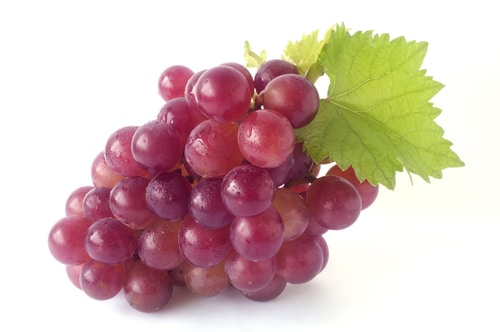 An ingredient in grapes and red wine called resveratrol has garnered a lot of attention recently. In animals, resveratrol reduces inflammation, lowers blood sugar, has cancer-protective properties and favorable effects on cardiovascular health. This is reason enough for celebration, but this natural plant-based ingredient may have other benefits as well. Recent research suggests it may improve aerobic capacity beyond what would be achieved from exercise alone. Is resveratrol the ultimate ergogenic acid?
An ingredient in grapes and red wine called resveratrol has garnered a lot of attention recently. In animals, resveratrol reduces inflammation, lowers blood sugar, has cancer-protective properties and favorable effects on cardiovascular health. This is reason enough for celebration, but this natural plant-based ingredient may have other benefits as well. Recent research suggests it may improve aerobic capacity beyond what would be achieved from exercise alone. Is resveratrol the ultimate ergogenic acid?
What is Resveratrol?
Resveratrol is a phytoalexin, a compound produced by plants when they’re attacked by insects or experience other forms of stress. It’s found in greatest abundance in red grapes and red wine, although you can find it in modest amounts in other berries and peanuts. Resveratrol has long intrigued researchers because it slows down the aging process and prolongs lifespan in some animal species. That’s why there’s ongoing research looking at the anti-aging benefits of resveratrol. Countries like France that drink red wine regularly enjoy protection against heart disease despite eating a high-fat diet. Some experts believe the resveratrol in wine accounts for this benefit.
Resveratrol and Exercise Performance
Resveratrol appears to activate some of the same pathways that are stimulated by exercise. That’s why some scientists have suggested that resveratrol offers some of the benefits of a workout without the “sweat.” Now a recent study published in The Journal of Physiology shows that resveratrol boosts exercise performance in rats by 25%. Rats fed food supplemented with resveratrol were able to run harder and longer than rats that ate a regular diet without resveratrol. Not only did the rats show improvements in aerobic capacity, but they also had greater strength in their leg muscles after eating a diet supplemented with resveratrol.
One of the ways resveratrol may increase exercise performance is the effect it has on mitochondria, tiny energy-producing organelles inside cells. Mitochondria are the energy powerhouses that supply ATP to hard-working muscles during exercise. According to research, resveratrol improves the function of mitochondria in muscle cells and other cells as well. This may be one way it boosts exercise performance. In addition, an improved mitochondrial function may be beneficial for weight control. Rats supplemented with resveratrol lost weight. Resveratrol also increases insulin sensitivity, which may explain why it lowers blood sugar.
Other intriguing research shows that resveratrol activates the same gene pathways as calorie restriction. Calorie restriction prolongs lifespan in some animal species, although a recent study showed it didn’t affect lifespan in monkeys. It’s possible that resveratrol may have some of the same benefits as calorie restriction without restricting calories – assuming calorie restriction has benefits in humans, as some studies suggest.
The Bottom Line?
Resveratrol may have the potential to boost exercise performance, although it’s too early to say whether this applies to humans to the same degree it does in rats. Is it too early to consider supplements? Some health food stores offer resveratrol supplements, but it’s not clear whether they’re safe for long-term use. Until there’s more research, get resveratrol naturally by eating red grapes and berries – and red wine in moderation.
References:
The Journal of Physiology, 2012; 590 (11): 2783 DOI: 10.1113/jphysiol.2012.230490.
Cell. 2006 Dec 15;127(6):1109-22. Epub 2006 Nov 16.
Nutraingredients.com. “Resveratrol Could Enhance Exercise Performance”

